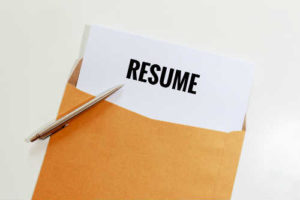Developing and maintaining relationships is critical in the professional world. We’ve all heard about the importance of networking when it comes to a job search, which also ties into social capital and c-level personal branding. When you help enough people get what they need, the favor will eventually be returned to you when you least expect it. People in your network may be able to offer a tremendous amount of value to you in different ways, so there’s no harm in asking for a favor if it’s done so appropriately. Just be sure you’ve built up enough social capital before doing so.
How to Start Building Social Capital
You can’t have social capital if you don’t have a trusted network of professionals. Start by focusing on your LinkedIn profile development and building your list of connections. Reach out to former colleagues and classmates to see what they are up to. But you don’t even have to stop there. Talk to people every chance you get, whether it’s your neighbors, people you encounter at different events you attend and more. As you start growing your list of connections, you’ll be taking steps in the right direction to build your social capital.
People Value Connections and Relationships
One thing about networking and c-level personal branding to always remember is people value relationships. So you shouldn’t simply ask a connection for help finding a job. They will be more likely to help you if they’ve developed a good professional relationship with you over a period of time. You can do this by reaching out periodically via your LinkedIn executive profile, talking to them over the phone or even meeting with them in person occasionally. Staying in touch even when you don’t need to ask a favor is valuable and will strengthen your social capital.
You Never Know Who Can Help You Reach Your Goals
Being genuine in your c-level personal branding efforts can pay dividends in the long run. You never know when someone you cross paths with can benefit your job search efforts, so treating everyone with the same amount of respect is important. The more you give, the more you will receive in return. Small daily actions to continue developing your social capital may lead you to opportunities you never thought were available otherwise.
At Professional Resume Services, we help executives craft the perfect resume as well as focus on LinkedIn profile development. Job searches today involve many different elements, and we are here to help ensure all bases are covered. Social capital is very valuable for executives, so feel free to contact us at any time for more tips and advice on how to improve yours.
Getting involved in your community is much more than just helping others, even though that is the main benefit. Too many people think they are too busy to volunteer, or even think there are plenty of volunteers already so they aren’t needed. However, what if we told you volunteering in your community could help your job search, give you something else to put on your executive resume biography and boost your personal branding at the same time? The best professional resume writers preach this all the time for these reasons.
Boost Your Credibility
You may be a credible executive within your industry, but no one else outside of it knows that. Volunteering gives you the opportunity to get out in the community and show your talents as well. Offering your services for sale at your job is your career, but offering them for free through volunteering efforts can boost your credibility tremendously.
Meet New People
When talking to the best professional resume writers, they will always promote the importance of networking. The truth is many executives aren’t very fond of going out of their way to meet new people since it sometimes doesn’t feel organic. Volunteering is completely different. Your purpose for volunteering is to serve the community, and you’ll inevitably meet new people along the way. And if you happen to be searching for a job during your efforts, you never know if you could be connected to your next employer somehow.
Fill In Employment Gaps With Volunteering
Another way volunteering is beneficial is by filling in employment gaps in your executive resume biography. Employers typically don’t like to see gaps in employment for more than a few months. However, if you are able to fill in those gaps with volunteer projects, you’ll likely be forgiven and your chances of landing your next job won’t suffer. In many ways, volunteering can demonstrate your personal brand and your soft skills, while portraying you as a well-rounded person overall.
Open Your Mind To New Options
Finally, your volunteering efforts may open your mind to options you’ve never considered before. This may not apply to you if you’re happy with your current career, but it does if you’re unemployed or looking for a new job. Happiness with any job comes from being satisfied with the work you do, and being fulfilling and meaningful. The connections you make while volunteering, along with the volunteer work itself, can help you open your mind to new opportunities if you feel like you’re stuck.
Professional Resume Services does much more than simply write resumes that get you hired. Our team focuses on the big picture with every executive in order to help them find the most satisfying career path for them. Every individual is different, and sometimes volunteering is a great way to learn more about yourself and your passions. Feel free to contact us at any time to learn more about the connection between volunteering and your executive job search.
Many executives feel similar emotions when they’re searching for a new job. They work so hard on their executive resume biography, improving their personal brand by networking and more just to land an interview. And when the opportunity to interview at a great employer presents itself, you want to do your absolute best. But what does it mean exactly to be your “best” at an interview? Sometimes simply being yourself will put you ahead of the curve, as interviewers can identify a dishonest person quickly. In addition to honesty, here are some of the best ways you can ace your c-level job interview.
Research, Research, Research
Before you even step foot in the interview, you have a lot of research to do. Research the company as much as you possibly can. This can include visiting their website, asking a recruiter what they know about the company, dissecting the job description as thoroughly as possible and you may even consider contacting the employer directly to learn more about the position. And if you’re able to find out the name of the interviewer, take a look at their LinkedIn profile to learn about them, so you have an idea of who you’ll be talking to. You may have already conducted some of this research when writing your executive resume biography, but you can never be too prepared.
Be Natural When Talking To The Interviewer
Rehearsing a list of commonly asked interview questions will help you be prepared to answer them, but you also don’t want to sound like you have canned responses. The key to writing resumes that get you hired isn’t necessarily the same key as interviewing successfully. Your resume should use professional language as much as possible, while your voice should be more natural in an interview. Just don’t confuse natural language with unprofessionalism, though.
Ask Your Own Questions
The best resume writing service will suggest having your own list of questions to ask the interviewer as well. You want to make sure the employer is as good of a fit as it seems like on paper, so ask them why they believe you would fit in. Ask them about short-term and long-term opportunities, potential advancement, travel time and anything else you have concerns about. Most interviewers will be open to answering all of these types of questions, and may even be more impressed with you as a result since it demonstrates your strong interest in the position.
Professional Resume Services prides itself on not only being the best resume writing service, but also a resource for executives who need assistance with interview preparation or anything else. We enjoy working with executives of all backgrounds and understand everyone has their own needs and desires. Heading into an interview is a nervous time for most people, so feel free to reach out to us at any time if there’s anything we can do to help.
One of the questions every interviewer will ask their interviewee revolves around their short-term and long-term goals, even if you state this information in your executive resume biography. But even when you know the question is coming, it’s still sometimes difficult to clearly communicate what your goals actually are. Your interviewer is likely looking for some key points in your answer, such as your intentions, commitment and ambition level. Their reason with asking the question is to determine whether you are the right fit for the goals they have planned for you. Here are some tips for answering this common question.
Tell The Interviewer Your Current Situation
You may have heard before that you have to remember where you’ve been to know where you want to go. The top resume writing services always recommend being as genuine as possible in an interview setting, even if you’re not necessarily where you want to be in your career. But instead of making it sound negative, reinforce the fact that you know what you’ve done in the past isn’t satisfactory and you’re looking for more growth as a professional.
Explain How You’re Working To Reach Your Goals
It’s easy to talk about wanting to advance in your career, but it’s another thing to do the work to prove it. Your executive resume biography may indicate some of this, but tell your interviewer what you’re doing right now to help you reach your short-term and long-term goals. This could be getting more education, certifications, working on side projects and more. Having your goals tied to actions will demonstrate how serious you are about reaching them.
Tie Your Answer To The Job Description
You have to also remember to consider the job description when answering the question, like you do when writing a professional resume. Talking about your personal goals is a breeze, but it means nothing unless the interviewer knows how they relate to the job opening. To do this, look through the job description and find some of the important responsibilities required. Then think about the skills you bring to the table to be able to handle those responsibilities now and in the future. If you don’t quite have all of the skills for the highest levels of responsibility right now, you can talk about how those skills are in your long-term plans and how you’re working toward achieving them.
A Little Uncertainty Is Acceptable
Being honest is always the best way to answer an interview question. If you’re uncertain about any aspect of your goals, including what they are or how you’ll get there, don’t just make up an answer that sounds good. You should have at least a general idea of some short-term goals you have, so as long as you can communicate those clearly, the interviewer likely won’t penalize you if they are on track with what they are looking for.
Professional Resume Services is one of the top resume writing services for many reasons. We focus on much more than simply writing resumes. We want to coach and guide you through every aspect of the job search process as much as we can. And because of this, we will take the time to understand your specific goals to better prepare you for interview questions along the way. Feel free to reach out to us at any time for some guidance with your job search.
Are you happy with your job? When people are asked this question, they often times aren’t sure how to answer it. They might be happy with the paycheck they receive every two weeks, but they might dread going into the office every day. Money is required to live the lifestyle you desire, and fair compensation should contribute to overall happiness. However, there are plenty of other factors that contribute to happiness at work, and these factors go well beyond what can be written in your executive bio.
Positive Relationships With Colleagues
If you’re like many people, you likely spend more time with your co-workers than you do your own family. Work can be a miserable place to go to every day if you don’t get along with the people there. Try to go out of your way a bit to form positive relationships with your colleagues. This can simply mean talking to them about their weekend, discussing a favorite sport or grabbing lunch together. These relationships can make you feel like you are part of a team and can lead to overall happiness on a daily basis.
Meaningful Opportunities
When you spend a lot of time writing resumes and cover letters to find a job, you likely want an opportunity for growth. It may take a while for you to advance, depending on your level of experience, but knowing the opportunities are available should be encouraging. Setting goals and working toward them can make your daily job worth the effort. Plus, you may eventually find yourself in a leadership role you never imagined, which will be a great addition to your executive bio.
Work-Life Balance
No one likes to work all the time. In fact, many people today say having a work-life balance is more important to them than the money they make. Having more time to do things outside of work can make you happier when you’re at work. Burnout is a real thing and can occur quickly when you work too many hours. The top resume writing services always suggest taking a close look at the work-life balance you desire before accepting any job.
Overall Company Culture
Finally, the overall culture of the company you work for should be a fit for you. If you never feel comfortable talking to someone, your manager is never accessible or if there’s simply a negative vibe in the office all the time, it will eventually wear on you. A company’s culture is important for employees today, and many of them will write about the culture they desire in their executive bio. Being comfortable, confident and happy are all signs you’re happy with the environment you work in.
Professional Resume Services is one of the top resume writing services for many reasons. While our expertise is in writing and revising resumes, cover letters and more, we also work with executives to help them discover the right workplace environments for them. Happiness is a choice, but it’s easier to choose to be happy when you work in the right environment. Never hesitate to contact us if you need to talk about your current or future career.
As important as a well-crafted executive resume is, it’s far from being the one component of your brand that will help you stand out. The times have changed significantly over the last decade or so, and the importance of personal branding for senior level managers has never been higher. This is especially true when it comes to online branding. You may have a LinkedIn profile, a website, blog, social media accounts or a combination of them, but it doesn’t necessarily mean you have a strong online brand. Here are some ways to help you determine whether your online brand is strong enough to compete in the job market today.
Search For Your Name And View The Results
It doesn’t take much effort to search for your name on the Internet, but what you find could prove valuable. If you have to scroll through several pages of results to find anything about yourself, then you need to work on your online brand. The type of information you do see about yourself is what makes up your online brand, whether you like it or not. In order to improve your image, you could start with a LinkedIn profile service to help you at least get your LinkedIn profile stronger. From that point, you can slowly work on reshaping your image.
Create Engaging Content Regularly
One way to start the process of strengthening your online brand is to create engaging content on a regular basis. Post thoughtful and original articles on your social media accounts or website and promote engagement with others. It’s valuable to visit a LinkedIn profile service from this aspect, since the professionals there can help make your content reach as many people as possible. When you are consistent with creating unique content and providing valuable information, people will start recognizing you and your online brand will start taking shape.
Be Consistent Across All Platforms
Consistency is critical when it comes to personal branding for senior level managers. A recruiter or hiring manager wants to look at your LinkedIn profile, your website and social media accounts and see the same overall message. If there are any doubts or concerns about your actual brand, you may be hurting your chances of landing the job you desire or even being recognized by the right people.
Professional Resume Services does more than just help you with your executive bio. We want to help you make your name relevant by providing tips and advice on unique content, brushing up your resume, LinkedIn profile and much more. The importance of a strong online brand can never be understated, and we always keep it in mind when working with executives. If you ever need help shaping your online brand, feel free to reach out to us at any time for advice.
Everyone is going to make mistakes at work. Some mistakes are bigger than others, but most of them are repairable if you handle them in the appropriate manner. Many times if a good result comes out of the mistake, then you could actually enhance your reputation and make the most of it. Here are five steps to take if you’ve made a mistake at work.
Apologize To The Appropriate People
Most of the time you’ll have to apologize to your boss for a mistake you’ve made. Even if what you did or didn’t do was out of your control to some extent, it’s important to make a sincere apology about it. One thing you can’t do is blame others for it. Apologizing immediately will help your reputation and give you the opportunity to make up for it.
Take Full Responsibility
Even if a mistake wasn’t entirely your fault, it’s never good for your c-level personal branding to throw others under the bus. While it’s usually acceptable to acknowledge external circumstances that may have led to a mistake being made, it still makes you look much better if you take complete responsibility and work toward fixing it.
Seek Opportunities To Do Positive Work
If your reputation has taken a hit because of your mistake and you’ve done the first two steps, the next thing to do is seek out opportunities to prove yourself again. One mistake generally will not drastically damage your reputation, and it can sometimes quickly be restored by producing high quality work again. Of course, negatives generally outweigh positives, so the more positive work you do, the quicker the negatives will fade away.
Let it Go
Dwelling on a mistake isn’t good for anyone. When you’ve apologized, taken full responsibility and continue to do great work, you have to let your big mistake go. It’s easy to continue thinking about the mistake and how bad you feel about it, but chances are others have moved on from it, so you should too. It does no good to continue thinking about the mistake, since it could hinder your ability to move on.
Collaborate With A Mentor
If all else fails, talk with your mentor about the mistake you’ve made and how you can successfully alleviate it. Your mentor should be very tied into your c-level personal branding, so getting advice from them should be very beneficial. If nothing else, your mentor can bring you peace of mind knowing you’ve done everything you can to fix your mistake and help you move on from it.
Professional Resume Services is one of the top rated resume writing services, but we believe we are more than that. We enjoy helping executives with every aspect of their job search, as well as deal with issues that come up with their current job. Whether you need help writing an executive bio or just need to talk about personal branding, contact us at any time and we will be here to help.
Writing a resume should take a while due to the detailed nature of it. However, if you have more questions than answers as you’re writing it, then it could be taking longer than it needs to. It’s only natural for executives to have questions when crafting their resume, and a professional resume writing service can help answer all of them. No question is unreasonable, and here are some of the most frequently asked questions we hear.
What Length Should My Resume Be?
A common misconception is a resume should never be more than one or two pages. While this could be true for some professions, it’s acceptable to make it a little longer if you’re applying for a senior level position. The key is formatting the resume so it is easy to read, highlights your important attributes and doesn’t have big chunks of text. A professional resume writing service can help you trim some of your words, so each one is meaningful no matter how long the resume ends up being.
How Can My Resume Represent Me?
Focusing on your personal brand is the best way to make your resume give a true representation of who you are. Your resume gives you the opportunity to tell about your skills and accomplishments, as well as your soft skills like leadership ability, personality and more. Another way for your resume to be a true representation of you is to target your audience and write to them specifically.
What’s The Purpose of A Biography?
An executive resume biography shouldn’t simply summarize your resume, contrary to popular belief. Instead, it should be used as a tool to tell a story about your accomplishments and expand more on your soft skills. The goal with an executive resume biography is to provide employers with a vision of how you can help their company by expanding on your resume.
Is A Cover Letter Really Necessary?
Sometimes employers will read cover letters and sometimes they won’t. You never know which side the company is on, so it’s always best to just write one. When you work with a cover letter writing service, you can easily accomplish this and actually enhance your chances of landing an interview. Sending in a cover letter with your resume won’t hurt your chances, as long as it’s written appropriately. But not sending in a cover letter could get your resume thrown out immediately.
Professional Resume Services is here to answer all of your questions pertaining to executive resumes and more. We enjoy helping job seekers with their resume and understand there are many questions throughout the process. If you ever have a question about your resume, cover letter or anything else, don’t hesitate to reach out to us and we will help you in any way we can.








